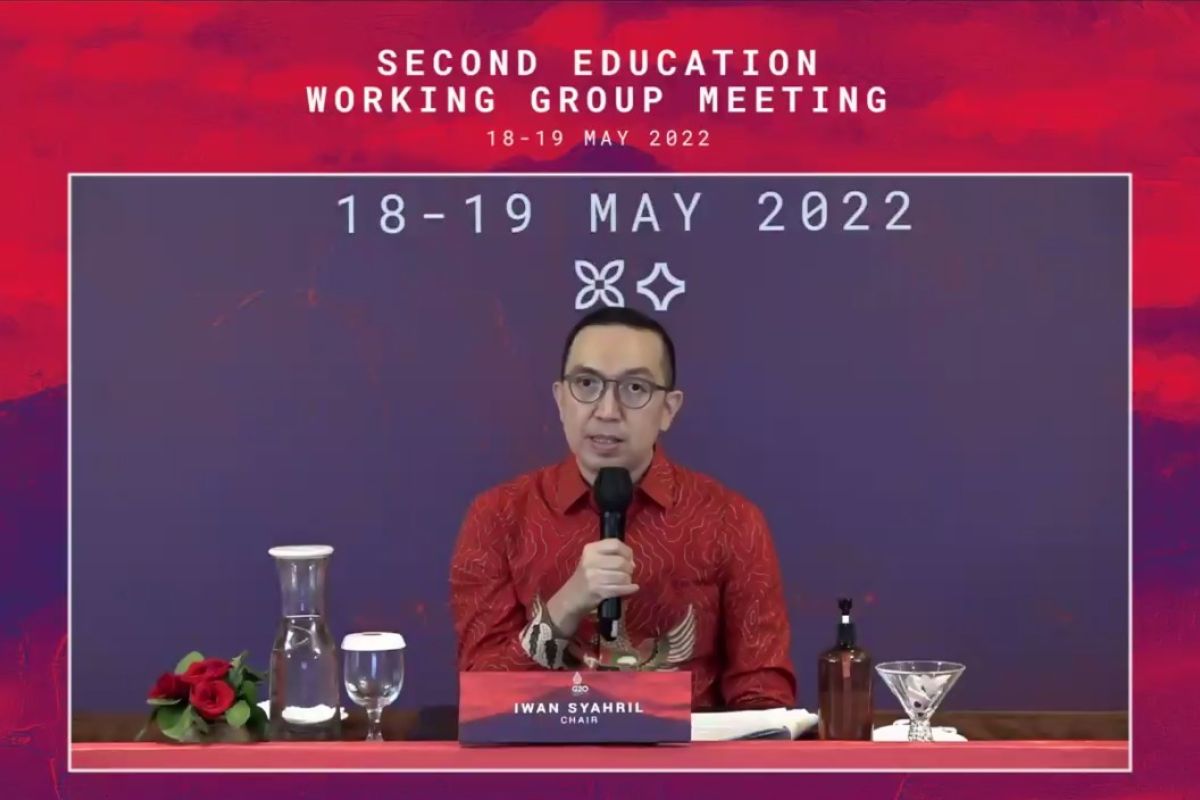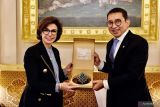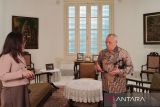Jakarta (ANTARA) - The Civil 20 (C20) Education, Digitalization, and Civic Space Working Group (EDCSWG) has highlighted the urgent need for ensuring children’s access to universal, inclusive, safe, and quality education in the wake of the COVID-19 pandemic.
Education, as one of children's basic services, has experienced serious challenges and disruptions during the pandemic, which has devastated educational and learning opportunities for children, the working group noted, according to a release on Friday.
Millions of learners, mostly children and youth, are experiencing learning loss due to lockdowns and school closures, the EDCSWG said. Two years into the pandemic, more than 1.6 billion children continue to face difficulties in the learning process. This unprecedented situation presents challenges for children with access to technology and even more for those without, it added.
This bleak picture emerged at a global webinar held by EDCSWG, which featured a government official and experts from NGOs (non-government organizations) from several countries on Tuesday (May 31, 2022).
The webinar entitled "Access to Universal, Inclusive, and Safe Quality Education" highlighted serious learning issues currently faced by children and youth and explored options for addressing the challenges and shaped calls to action for global leaders.
A grim picture of the potential learning loss was suggested by data presented by Emma Wagner from Save the Children, the United Kingdom: 1.6 billion learners are out of school because of COVID-19 and around 50 percent of them have no access to computers, while 43 percent lack access to the Internet.
Meanwhile, in low- and middle-income countries, the share of children living in learning poverty, which was already over 50 percent before the pandemic, is expected to rise sharply to 70 percent, according to the humanitarian aid organization.
It further stated that 4 out of 5 learners have learned very little or nothing while out of school. The impact on out-of-school girls has been worse, with their learning experience disrupted by increased household chores and caregiving responsibilities.
Baca juga: Children of the Light tawarkan petualangan penuh interaksi sosial
Data from several countries paints a similar picture. According to a global study conducted by Save the Children, in Indonesia, 79 percent of children living in rural areas are unable to access adequate learning materials.
Meanwhile, in South Africa, 400–500 thousand learners have dropped out of school over the past 16 months, according to the National Income Dynamics Study. The UNICEF in 2020 reported that 78 percent of children aged 5–18 years are learning less in India. In Saudi Arabia, 57 percent of low-income families have access to computers, according to an OECD (Organisation for Economic Co-operation and Development) report released in 2020.
Taking note of this, chair of the G20 Indonesia Education Working Group (EdWG), Iwan Syahril, outlined the G20 EdWG's strategies for overcoming educational inequalities and promoting recovery in the education sector in a post-Covid world.
Indonesia will prioritize children in vulnerable areas and has put a plan together to encounter the current problems under the four G20 EdWG priority agendas, he informed. In short, the agendas will address the issues by pushing for universal and quality education, promoting digital technology, and bringing all actors together through solidarity and partnership in order to better prepare for the future of work post-COVID, he said.
However, as the world continues to fight against COVID-19 and other emergencies, the education sector requires immediate attention, in particular from G20 leaders. Therefore, the Civil 20 (C20)—a forum for Civil Society Organizations worldwide for bringing people’s voices and agendas to leaders and one of the official Engagement Groups (EGs) of the G20—must take the center and stress the urgency of the situation to G20 leaders.
G20 leaders must take the C20’s inputs into account more meaningfully, as suggested by Sugeng Bahagijo, the C20 chair. Children’s learning life is at stake. Left unresolved, current issues could lead to more learning loss and learning poverty, and hinder them from upward mobility.
The G20 EdWG 2022, chaired by the Indonesian Ministry of Education, Culture, Research, and Technology, has prepared strategies to overcome this based on the so-called ‘Emancipated Learning’ model. To strengthen the strategies, the C20 has called upon G20 leaders to prioritize the most disadvantaged learners among all age groups -- especially out-of-school children, girls, and women, as well as those in vulnerable and remote areas.
The C20 has also called on G20 leaders to guarantee safe learning environments for all learners, especially children; secure more than sufficient education budgets to mitigate learning loss and learning poverty; and engage, partner, and collaborate with teachers, parents, and caregivers to provide innovative teaching and learning methods for more resilient education.








